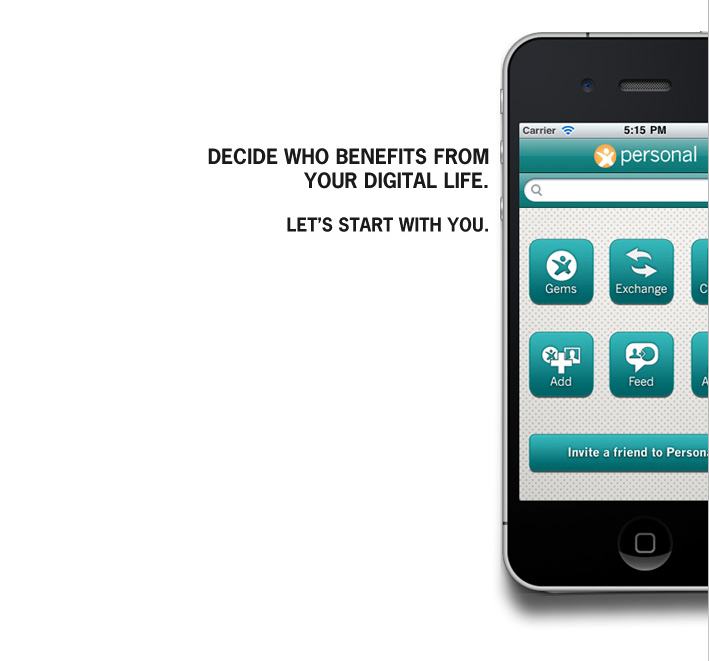Your personal data isn't free (and other misconceptions)

I read a nice profile in the New York Times this morning about a Washington, D.C.-based startup that wants to find a way to better leverage your personal information for goods, online and off.
The startup, called Personal, has a noble goal: put the personal data cat back into the bag. The idea is that too many of us have to give up personal information to online services such as Facebook, various Google products and yes, even ZDNet -- but we're not receiving anything of value in exchange.
Joshua Brustein reports:
People have been willing to give away their data while the companies make money. But there is some momentum for the idea that personal data could function as a kind of online currency, to be cashed in directly or exchanged for other items of value. A number of start-ups allow people to take control — and perhaps profit from — the digital trails that they leave on the Internet.
“That marketplace does not exist right now, because consumers are not in on the game,” said Shane Green, who founded a company called Personal in 2009.
More control over our personal data? I'm all for it. But the problem is that we already have control of this data -- and we're voting with our feet (OK, fingers) to give it away.
First, a word about Green's company. The company offers "personal data vaults" that contain thousands of data points about...well, you, from your birthdate to your food preferences. (April 7 and seafood, thanks very much.) The idea is to give you a centralized place to control what information you share with other vendors, placing Personal in between you and your favorite online services as a sort of digital bouncer who demands a cover charge for entrance to the club.
Here's the problem, though: we're already all too happy to give up our personal data to vendors directly, and have little incentive, short of a centralized place to manage all this data, to enter a middleman into the picture.
Here's the other problem: Facebook is already successfully doing this. The secret sauce of its recent pie-in-the-sky valuation is that it remains one of the few social networks based on real-life identity and information related to it.
And here's the fundamental flaw: we do, in fact, get services in exchange for this data. On Facebook, you get a platform to keep up with your friends. On Google, you get Gmail and Docs and a suite of free cloud-based services. On ZDNet, you get access to our various newsletters, the TalkBacks section, whitepaper downloads and webcasts.
You may not like what you get for your personal information; that much is true. But most people -- myself included -- value our personal information rather low. Is my birthdate, location and e-mail address worth access to any number of new online services? Probably, because I joined them. Is it worth access to ZDNet's gated functions? Maybe, maybe not, and that's why some people participate and others just observe. Is it worth access to Gmail and Docs? Without a doubt, at least for me, because I use these services extremely frequently.
Don't like what you get? Don't join. Don't like the price? Don't buy it. That's how the market works, and it continues to function as such online.
Personal is built on the idea that personal data can function like currency if we treat it that way. The problem is that we already do. Until Personal can figure out a way to offer its own value -- in the same vein as Intuit's Mint, which saw market opportunity to aggregate financial data for a (mostly) complete picture -- it will fail.
Because our personal data is already secure. It is us who raids the vault on a regular basis.
Editor's note: Think you're not getting enough for your personal data on ZDNet? Don't understand why we ask for it in the first place? Drop us a line.
